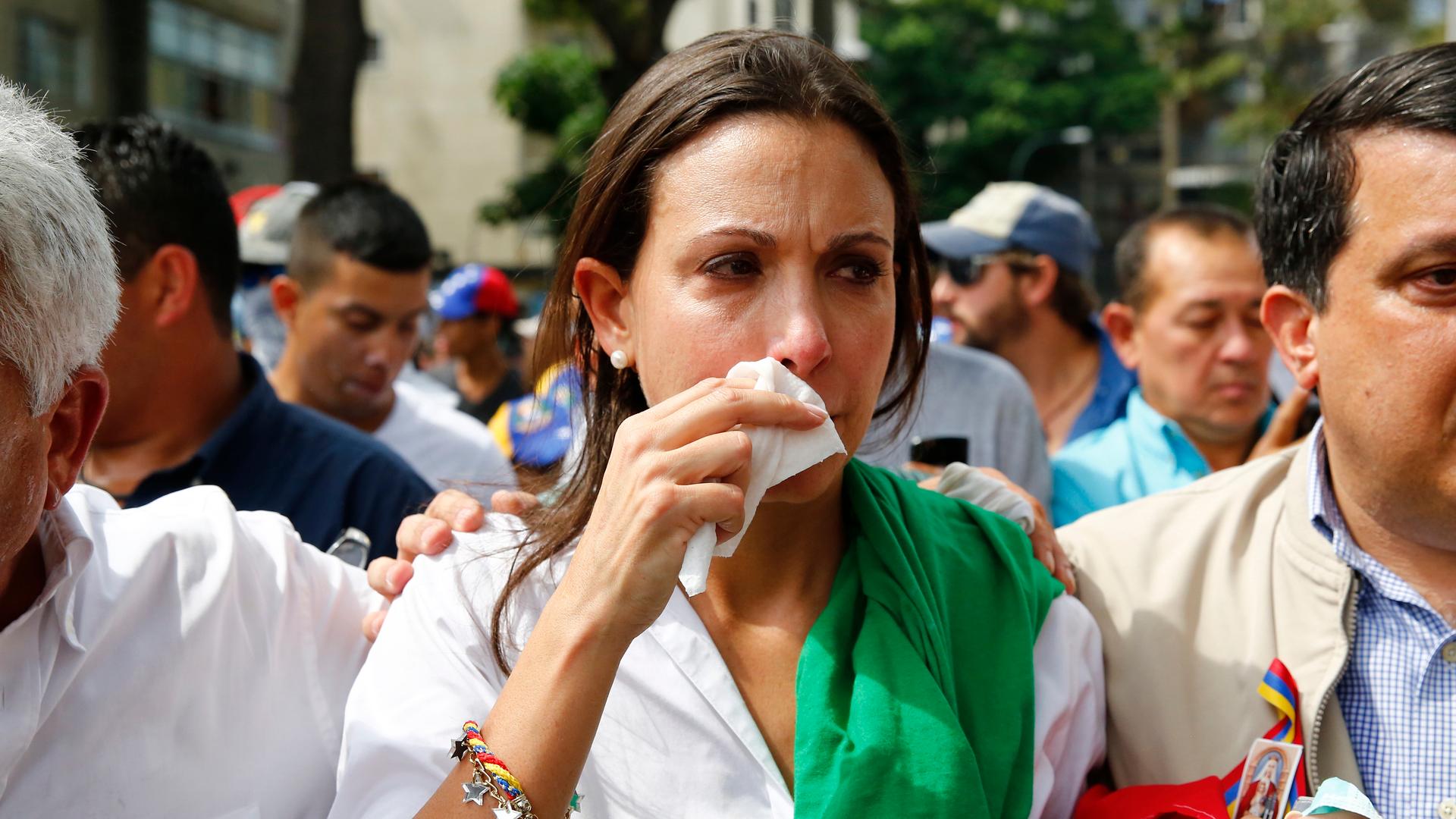A prominent Venezuelan opposition leader has vowed to challenge her ouster from the National Assembly
Venezuelan opposition leader Maria Corina Machado reacts after inhaling tear gas after she tried to take a seat at the national assembly in Caracas April 1, 2014.
Venezuelan Deputy Maria Corina Machado like many in the opposition wants President Nicolas Maduro to resign. She even flew to Washington to speak up against repression in Venezuela before the Organization of American States.
That did not sit well with Maduro and his allies. They responded by expelling Machado from her seat, and stripping her of parliamentary immunity.
George Ciccariello-Maher teaches political science at Drexel University in Philadelphia. He says there's more to the story.
"We should keep in mind that Machado was already being investigated for her ties to some of the more violent opposition protests and so she was in the process of having her immunity withdrawn but as it turned out, the president of the National Assembly took a much quicker route," he says.
When Machado went to speak to the Organization of American States she was not given time to speak. But Panama, Ciccariello-Maher says, has taken a sort of anti-Chavez line and offered her temporarily its seat.
"The argument of the head of the National Assembly is that in so doing, Machado became temporarily the representative of another country which is forbidden by Venezuelan law for parliamentarians, and this is something that was upheld by the Supreme Court in Venezuela," Ciccariello-Maher says.
Machado was elected to the National Assembly in 2010, representing the state of Miranda, Venezuela. It appears she’s not going to leave without a fight.
"My right and my duty is to attend National Assembly meetings and I intend to do that as I always have," the 46-year-old politician told her supporters at a rally in eastern Caracas on Tuesday.
Ciccariello-Maher says the there's a lot of political drama going on on both sides of the spectrum in Venezuela.
"This is part of the jousting that's going on back and forth between the Chavista leadership and the opposition and the real fundamental question is whether this is going to help or hurt the opposition," he says. "The interesting thing is that Machado is someone who is already seen very suspiciously by the Chavista grassroots, and so this is really something that plays into the idea that here is an individual that is treasonous and this is the accusation being made by Chavistas."
While the ongoing drama of street protests plays out in Venezuela, Ciccariello-Maher says it's important to keep in mind that the opposition did very well in elections last April, the first time in many years.
"What we're experiencing is a kind of over representation where people who speak English, people who are very good at using Twitter, have become something that US liberals have projected their desires upon," Ciccariello-Maher says. "And you have tweeting about what's going on in Venezuela without realizing that it's a small sector of the country that's in the streets."
The majority of Venezuelans, Ciccariello-Maher adds, still support the Maduro government and is attempting to press the government toward a more democratic country than existed previously.
"But they don't see these protests as the way to do it. They instead see the local communal councils, or the communes that are being built at the grass roots level in Venezuela as a vehicle for producing really the kind of socialism that the government has been promising for more than a decade," Ciccariello-Maher says.
